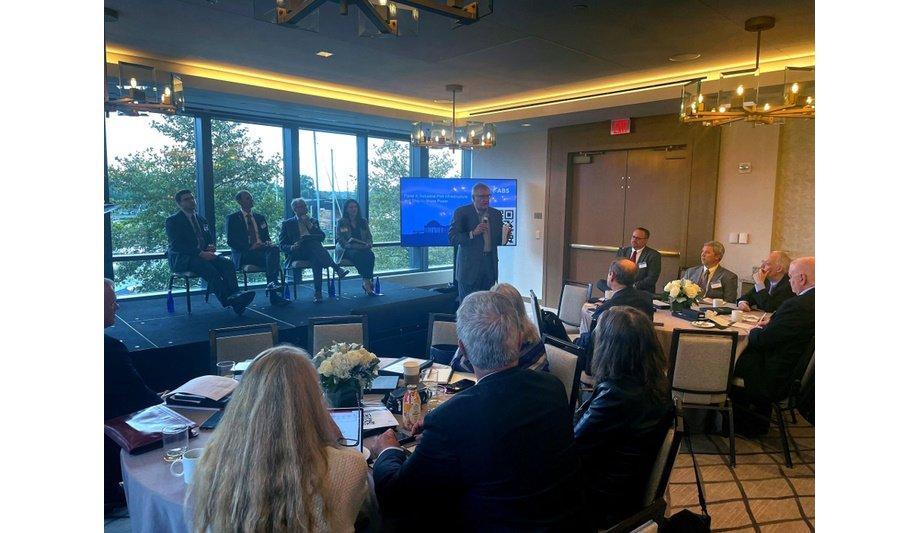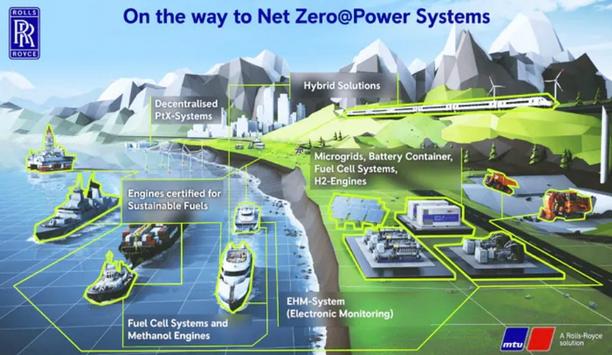“Nuclear energy has moved beyond a wildcard option and into the mainstream of potential solutions for a more sustainable maritime industry. Nuclear energy is not just about the potential for a reactor to operate on a ship. With advanced nuclear technology, the potential is so much more.”
That was the message from ABS Chairman and Chief Executive Officer Christopher J. Wiernicki, who welcomed nuclear energy experts, government representatives, academia, and senior maritime industry pioneers from around the world for the very well-attended ABS forum, The Role of Advanced Nuclear Technologies in the Maritime Energy Transition in Washington, DC.
Advanced nuclear technologies
Modern nuclear and renewable-based energy systems extend our line of sight of solutions to achieve"
“We see nuclear energy as an enabler for producing clean energy and clean fuels and as a power source for ship propulsion,” said Wiernicki. “Modern nuclear and renewable-based energy systems extend our line of sight of solutions to achieve net zero by 2050.”
The full-day conference confirmed the potential for advanced nuclear technologies in the maritime domain to provide a game-changing clean energy transition safely with project implementations likely to occur in the next 10 to 12 years.
Innovation and system technologies
Representatives from global shipyards and ship designers, nuclear technology developers, nuclear and maritime industry associations, academia and a variety of government agencies engaged in discussions in four panels moderated by ABS on technology maturity, regulatory and safety/risk considerations, maritime industry readiness, and port infrastructure readiness.
“The developmental path for nuclear energy at sea will require a concerted public-private effort in which innovation and system technologies are reduced to practice through modelling and simulation with a laser focus on safety,” said Wiernicki.
Advanced nuclear technology
Wiernicki hosted a congressional briefing on Capitol Hill in coordination with the NRIC
“Government support is critical. There is a real opportunity right now for forward-thinking governments to drive the agenda with practical projects by providing real applications of advanced nuclear technology in a government-controlled and regulated environment. Government applications on dredges, strategic sealift vessels, ice breakers, and research vessels may be a great place to start,” he said.
The day before the forum, Wiernicki hosted a congressional briefing on Capitol Hill in coordination with the National Reactor Innovation Centre (NRIC) and the bipartisan House Advanced Nuclear Caucus, including introductory comments by caucus members Rep. Chuck Fleischmann (TN-03) and Rep. Byron Donalds (FL-19).
Initiative on ABS Rules
Wiernicki emphasised that turning advanced nuclear technology into a practical reality for the maritime industry is an important tool for helping the maritime industry achieve net zero by 2050 and has the potential to grow economic opportunities and high-tech jobs in the maritime industry.
ABS is playing a pioneering role in helping government and industry shape the future of advanced nuclear technology in the maritime domain, including key research with the U.S. Department of Energy and multiple New Technology Qualification and Approval-in-Principle projects with industry. At the forum, ABS announced a major new initiative on ABS Rules for nuclear technology on maritime assets, and ABS confirmed its support for government and industry efforts to update outdated international and domestic regulations on the topic.



